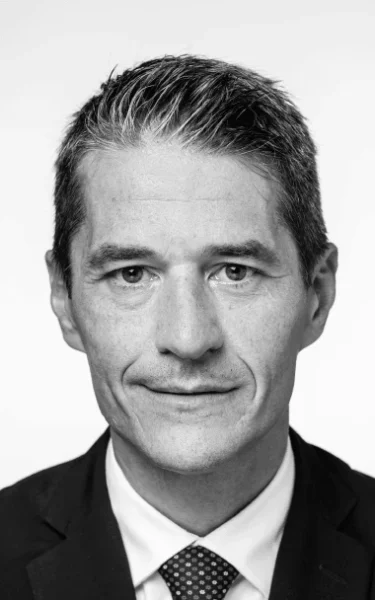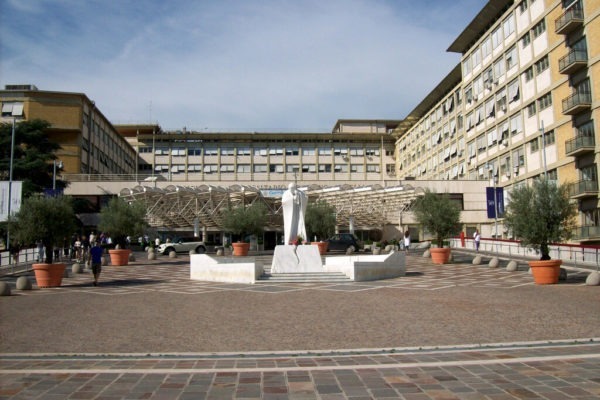Prof. Roberto Iezzi | IASIOS Council Member
Università Cattolica del Sacro Cuore – Fondazione Policlinico A. Gemelli | IASIOS Accredited Centre
 Professor Roberto Iezzi, a pioneer in Diagnostic and Interventional Radiology, is dedicated to advancing Interventional Oncology as a discipline. Specializing in a wide array of areas, including Oncological Interventional Radiology, Cardiovascular Imaging, Emergency and Urogenital Interventional Radiology, Prof. Iezzi’s expertise is unmatched.
Professor Roberto Iezzi, a pioneer in Diagnostic and Interventional Radiology, is dedicated to advancing Interventional Oncology as a discipline. Specializing in a wide array of areas, including Oncological Interventional Radiology, Cardiovascular Imaging, Emergency and Urogenital Interventional Radiology, Prof. Iezzi’s expertise is unmatched.
Currently, Prof. Iezzi leads the Emergency and Interventional Radiology Unit at the Università Cattolica del Sacro Cuore – Fondazione Policlinico A. Gemelli in Rome, which was accredited by IASIOS in 2022. He also serves as an associate professor at the Catholic University of the Sacred Heart in Rome. His contributions extend globally, as he actively participates in multidisciplinary boards and serves on Editorial Boards of esteemed journals.
Moreover, he has participated in numerous congresses in Italy and abroad is the founder of MIOLive (Mediterranean Interventional Oncology Live Congress) and is a member of scientific societies such as the Italian Society of Medical Radiology, the European Society of Radiology, the Society of Interventional Oncology, and the Cardiovascular Interventional Radiology Society of Europe (fellow), holding roles in Faculty and Program Planning Committee at their respective society congresses. He holds many awards for his clinical and investigative work. He is the author or co-author of several publications (>170 IF-published articles), abstracts, and book chapters.
IASIOS is privileged to have Prof. Iezzi as part of our council and community. We extend our gratitude to him for his tireless efforts in advancing the field of Interventional Oncology, and we look forward to continuing our collaboration in the pursuit of excellence in patient care.
Get to know Prof. Iezzi a little bit better!
What are your hobbies and interests outside of medicine?
Outside of my professional life, I greatly enjoy playing the violin, padel, and dancing tango. I also love travelling with my family.
Could you share an experience from your working/educational background that significantly impacted your journey?
Since I was a child, I knew I would become a doctor and a surgeon. By chance, during my fifth year of medical school, while I was waiting to receive my General Surgery thesis, I attended the Radiological department. There, I met a thoracic surgeon who was attending a residency in Radiology. She introduced me to Interventional Radiology, and I decided to abandon my potential career in surgery and start studying Radiology and Interventional Radiology.
Why did you choose a career in Interventional Oncology over other specialities?
Interventional Oncology allows you to be with your patients every step of the way, from diagnosis to treatment. As a radiologist, you’re deeply involved in both diagnosis and cutting-edge technology. You also take on the role of a clinician, overseeing patient management. As an Interventional Radiologist, you administer minimally invasive treatments, working closely with other specialists like oncologists, radiotherapists, and surgeons.
What was your motivation behind seeking IASIOS accreditation?
Obtaining an IASIOS accreditation enables us to establish a well-recognized network of high-level institutions.
What benefits does the IASIOS accreditation provide to the patients and the IOs?
IASIOS accreditation provides patients with the assurance that they will receive safe and effective treatment. Additionally, it aids Interventional Oncologists in refining and implementing their daily practice by offering a comprehensive process of patient care and treatment. This commitment to standardization elevates the quality assurance standards within the field.
Through the IASIOS accreditation process, we have enhanced and standardized our practice, ensuring that routine Interventional Oncology treatments adhere to high standards of quality.
How do you see the future and development of IO and the role it plays within cancer care?
Interventional Oncology is poised to play a pivotal role in patient management, shaping the future of “precision medicine”. We aim to deliver tailored treatments using a multidisciplinary approach for each patient. This approach represents a recognized alternative to traditional methods such as surgery, oncology, and radiotherapy.
By widening our indications and leveraging our main advantages—precision, minimally invasive techniques, minimal impact on quality of life, and curative treatment options—we strive to improve treatment outcomes and redefine standards of care in oncology. This evolution underscores the transformative potential of Interventional Oncology in providing personalized and effective solutions for patients facing cancer.
What advice do you have for the next generation of IO’s:
I invite all aspiring medical doctors to consider the benefits of becoming Interventional Oncologists, a field that offers technological innovation and is a constantly evolving branch of medicine and surgery. The best is yet to come!

